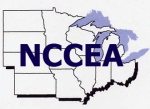Extension Teaching Methods and Learning Theories
Training on “Extension Teaching Methods and Learning Theories" helps Extension educators match their teaching methods with how their audiences learn and use information that ultimately influences their lives. This is not training that addresses specific program development/planning tools like needs assessments, logic modeling, evaluation techniques, and other development/planning tools like needs assessments, logic modeling, evaluation techniques, and other specific delivery methods.
This professional development opportunity is designed for new educators with a 4-H youth development assignment. Experienced educators can also benefit. Participants will develop an understanding of the 4-H Thriving Model. The purpose is to equip 4-H professionals with tools and resources that allow them to develop and create the necessary programming that leads youth participants to long-term programmatic outcomes. A secondary purpose is to create a professional cohort networking group.
Purdue PD.pdf
Adobe Acrobat document [159.6 KB]
The workshops aim to equip faculty and staff with knowledge and skills to integrate instructional activities into educational programs, courses and/or workshops. This program is offered in a flipped format: participants work through the online asynchronous materials and then meet in a synchronous cohort video conference. It includes 1-3 hrs independent study and 90 minutes live over the course of a week.
Iowa State2 PD.pdf
Adobe Acrobat document [146.7 KB]
* Thriving Positive Youth Development - this training is provided as one of the onboarding sessions for new agents. Participants will develop an understanding of the 4-H Thrive Model. The purpose of this professional development is to equip agents with the tools and resources to help them development programming that leads youth participants to programming outcomes.
*New Agent Orientation - includes sections on effective educational presentations, hybrid programming strategies, cultivating constructive conversations (facilitation).
KState Teaching.pdf
Adobe Acrobat document [98.3 KB]
We have an online, nonlinear, asynchronous course in D2L that is essentially a collection of modules on this topic. Learners can pick and choose which ones they do. Each module is ~30-60 minutes. MODULES: Andragogy (Adult Learning) & Working with Adults | Giving Better Presentations | Experiential Learning | Differentiating Instruction | Interaction | Storytelling | Scenario-Based Learning | Best Practices in Creating Educational Videos | Working withYouth | Lesson Planning | Classroom Management | Inclusive Teaching | Teaching Across Cultures. Note: Most of these individual topics can also be presented as a LIVE 60-12 minute zoom workshop if requested.
MSU.pdf
Adobe Acrobat document [163.9 KB]
This self-paced online course begins by building your knowledge of the meaning and intent behind active learning, engaged students and inclusive teaching. From there, we'll introduce a broad range of principles and strategies applicable to online, blended and face-to-face programs. Lastly, we'll introduce technologies you can leverage to facilitate active learning, engage students and incorporate inclusive teaching strategies into your programs.
Missouri Teaching.pdf
Adobe Acrobat document [148.5 KB]
This is a self-paced, structured course. Modules are completed in sequence and there are multiple quizzes and assignments. The course goal is to develop a strong learning science knowledge foundation to deepen your understanding of the "how" and "why" of evidence-based teaching strategies. We'll conclude this course by introducing evidence-based instructional strategies you can build into your programs; strategies that align with mind, brainand education science and are supported by research.
Missouri Teaching2.pdf
Adobe Acrobat document [150.8 KB]
Teaching Adults: A Professional Development Training: This workshop will help extension workers or other extension stakeholders to redesign their educational programing, and critique educational programs based on andragogy and principles of teaching and learning. This interactive workshop will provide participants with the knowledge and skill to apply adult learning principles, experiential learning concepts, and learning style preferences to current and future programing. Participants will select one of their current program outlines and redesign it during this engaging workshop and will leave this workshop with a product that can be used immediately. What: Application of andragogy and the principles of teaching and learning to training programs/workshops for adults. What For (Objectives)
Nebraska Teaching.pdf
Adobe Acrobat document [133.2 KB]
"Education & Information Delivery - Effectively deliver research-based education programs and information in a way that engages and meets the learning styles of the audiences we serve." is a two-day session that is part of a broader workshop series within our newly built (2023) SDSU Extension Orientation & Onboarding Program.
South Dakota.pdf
Adobe Acrobat document [138.5 KB]
Within Wisconsin Extension the majority of the training that applies to “Extension Teaching Methods and Learning Theories” is presented at new staff orientation. The Foundations of Extension Education Cohort (FEE) is a key part of new colleague onboarding where this Extension specific training is offered. Additionally, the Programmatic Institutes themselves occasionally offer venues for learning and sharing ideas related to teaching methods and learning theories.
Wisconsin PD.pdf
Adobe Acrobat document [160.0 KB]



